I went to the filing cabinet and pulled the specification sheet for the speaker driver and got to modelin' in WinISD. Several hours later, this was the result:
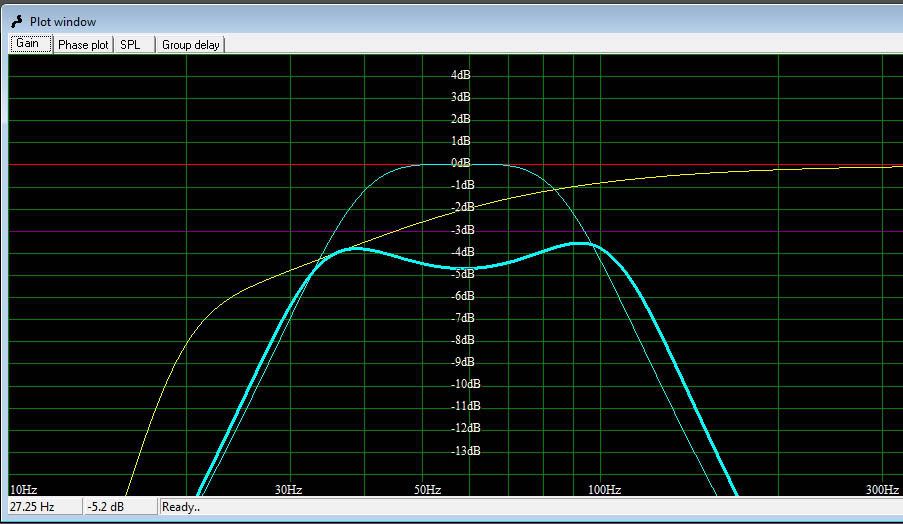
Yellow is the old box. Blue is the new box. WinISD picked the thin trace for maximum gain, and I tuned it to the thick line for maximum bandwidth with a small box and a port that is possible to keep entirely inside the box. It looks at first glance as if the old box beats the new design for deep low bass extension.
Then you model the SPL output and give the old box 1 Watt and the new box 2 Watts: The old box is not looking so deep compared to the new anymore, and the new has a fat corner where the old is just rolling off to inaudibility.
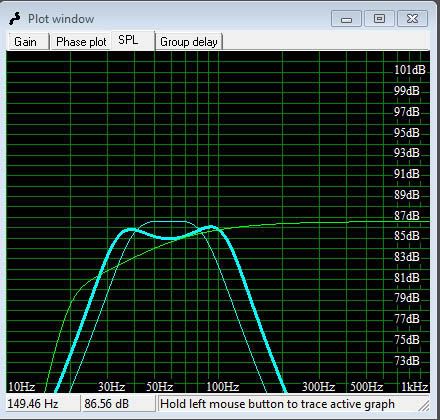
The box could have been smaller, but then the ports start getting long (as in multiple meters) and that is tough to fit in a small box! Besides which, group delay in a bandpass box is easy to let it get out of hand by using too small a box volume. In my opinion, this qualifies as "good" modeled group delay out of a BP4 enclosure.
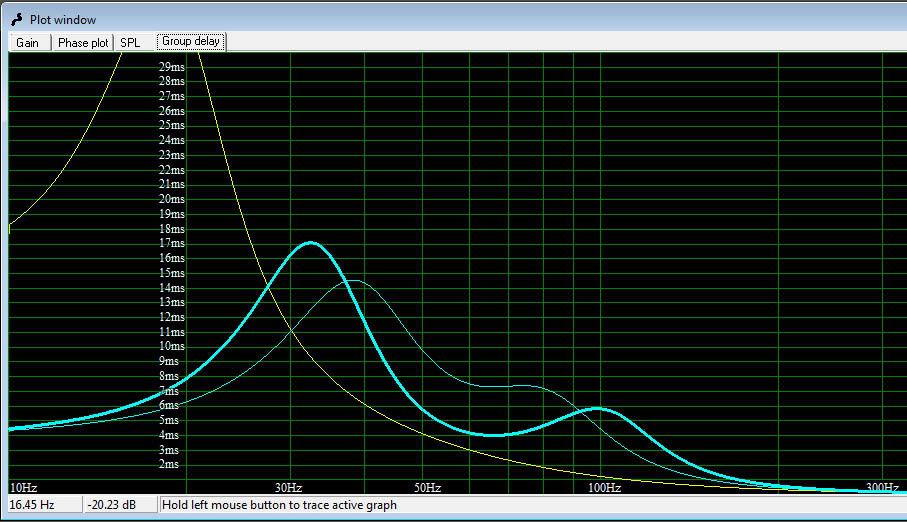
So I settled on a design and got to buildin' . . .
The new box is almost perzactly half the size of the old. It is also smaller than possible to fit this driver inside. I had to notch the side walls to give clearance for the sides of the woofer's basket!
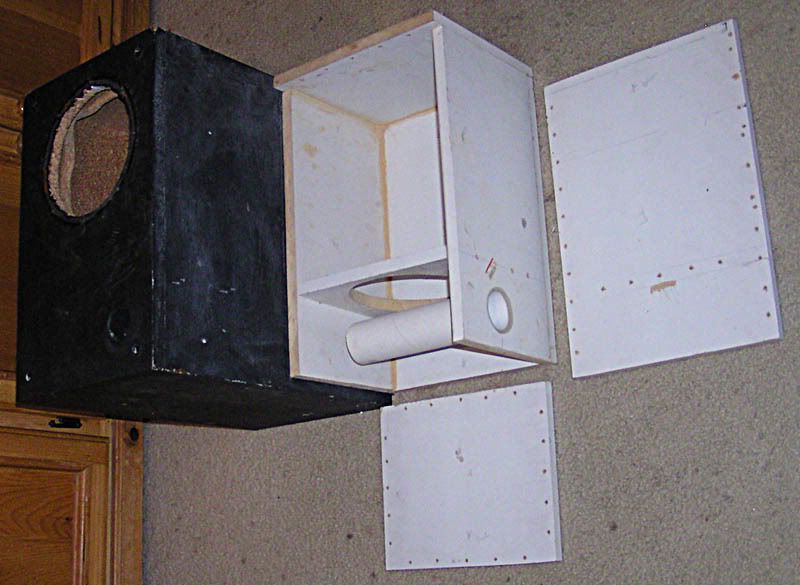
As I was final-assembling this speaker, my Darling Wife told me another project has priority. Okay, so this is as done as it gets for now. But for now it is finished enough to have some actual bass in the house, woohoO!
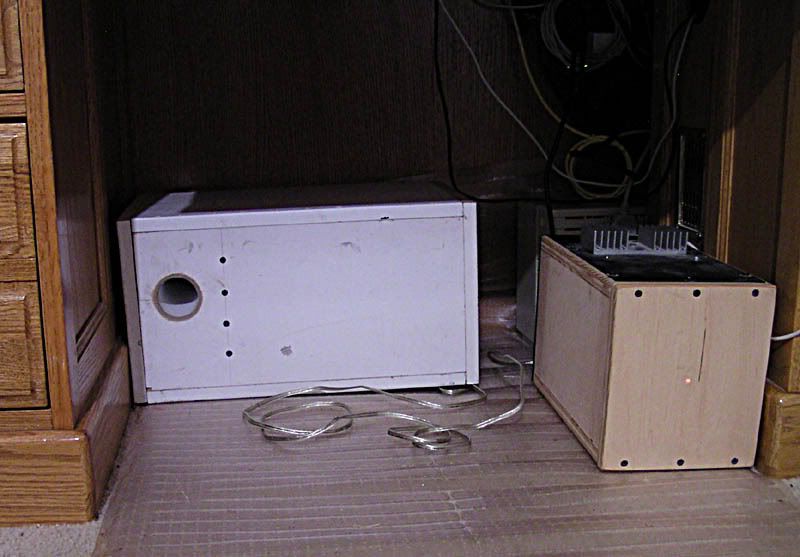
How does it sound? I played a CD that I sometimes listen to in my car, and I was sorely disappointed. My car has adequate audio equipment and this new sub was just sounding regular! Then I turned off the amplifier (the wooden box to the right) and the bottom octave disappeared! The sub integrates very well with the highs, to the extent that I didn't realize what I was listening to until I switched it off. Very nice. If it sounds like my car's radio, that is plenty good enough.
Now if only I could sneak enough time to get it finish sanded and painted . . . :(
********
For the geeks:
The sub driver is a nearly-decade-old obsolete-google-doesn't-remember-it Dayton "Thruster" 8" single voice coil model 295-160
Qts 0.390 . Vas 37.1L . Fs 31.6Hz . Re 3.7 ohms
Le 0.9mH . Xmax 8.72mm . Z 4 ohms . Qms 10.54
Qes .410 . SPL 86.6dB (1W) . Pe 180W . BL: 9
Dia: 203cm . Sd 201.3cm^2
The box worked out to be 15 liters in the rear chamber and 6 liters in the front with a 5cm x 23cm port. Signal entry is via spring terminals with spade connectors on both ends of the wires inside. Cabinet is unbraced 17mm MDF glued with clear silicone and screwed with 1-1/4" Deckmate screws. Max. output should be just over 102dB or so but that is a LOT for our house.
********
Update a full year later: Still rockin'. This box was built when my Darling Wife was in another city visiting family. Her mother came back with her, and I demonstrated this box to a very warm reception. The amp has a signal-detection circuit which takes a second to turn on. I put on a song DW likes and turned it up. She was unimpressed, until the amp kicked on. Then it was smiles all round. I am sooooooo happy to have done this.


No comments:
Post a Comment